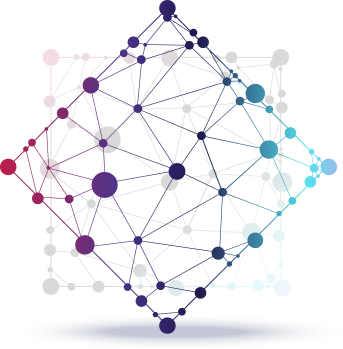- Global Shifts Detailed: Examining Today’s Breaking News and Shaping Tomorrow’s World.
- Geopolitical Landscapes: Shifting Power Dynamics
- Technological Disruption: The Fourth Industrial Revolution
- Climate Change: A Global Emergency
- Socioeconomic Trends: Inequality and Social Justice
Global Shifts Detailed: Examining Today’s Breaking News and Shaping Tomorrow’s World.
In an era defined by instant communication and global interconnectedness, staying informed about current events is paramount. The rapid dissemination of information, often referred to as ‘news’, shapes public opinion, influences policy decisions, and impacts lives across the globe. From political upheavals to technological advancements, financial fluctuations to environmental concerns, the world is in a constant state of flux, and understanding these shifts is crucial for navigating the complexities of modern life. Access to reliable and unbiased reporting has never been more essential.
The sheer volume of information available today can be overwhelming. Sources proliferate, ranging from traditional media outlets to social media platforms, blogs, and independent journalists. This abundance presents both opportunities and challenges. While it allows for diverse perspectives and greater transparency, it also creates fertile ground for misinformation, propaganda, and ‘fake news‘. The ability to critically evaluate information and discern credible sources from unreliable ones is a vital skill in the 21st century.
Geopolitical Landscapes: Shifting Power Dynamics
The global political landscape is undergoing a period of significant transition. The established world order, dominated by Western powers for decades, is being challenged by the rise of new economic and military forces. Countries like China and India are asserting their influence on the international stage, reshaping alliances and trade relationships. This shift in power dynamics is fueled by economic growth, technological innovation, and a growing desire for greater autonomy. The implications of these changes are far-reaching, impacting everything from international trade and security to environmental policy and human rights.
Regional conflicts and political instability continue to pose major threats to global peace and security. Ongoing conflicts in various parts of the world not only cause immense human suffering but also create ripple effects that destabilize entire regions. The rise of non-state actors, such as terrorist organizations and criminal networks, further complicates the security landscape. Diplomatic efforts to resolve these conflicts are often hampered by deep-seated mistrust, competing interests, and the involvement of external actors.
Economic interdependence is a defining characteristic of the modern world. Countries are increasingly reliant on each other for trade, investment, and economic growth. However, this interdependence also creates vulnerabilities. Economic shocks in one country can quickly spread to others, as demonstrated by the global financial crisis of 2008. Protectionist policies and trade wars can disrupt supply chains and undermine economic stability.
| United States | 26.95 | 2.4 |
| China | 17.7 | 5.2 |
| Germany | 4.43 | 0.9 |
| Japan | 4.23 | 2.0 |
Technological Disruption: The Fourth Industrial Revolution
We are currently experiencing what is often referred to as the Fourth Industrial Revolution, characterized by the convergence of physical, digital, and biological technologies. Artificial intelligence (AI), machine learning, robotics, biotechnology, and the Internet of Things (IoT) are transforming industries and reshaping the way we live and work. These technologies offer enormous potential for innovation and economic growth, but they also raise important ethical and societal concerns.
The rise of AI and automation is transforming the labor market. While some jobs will be displaced by automation, new jobs will also be created, requiring different skills and expertise. Investing in education and training programs to equip workers with the skills needed for the future is crucial. Addressing the potential for increased inequality and social disruption caused by automation is also a key challenge.
The rapid development of biotechnology has the potential to revolutionize healthcare, agriculture, and environmental sustainability. Gene editing technologies, such as CRISPR, offer the promise of curing genetic diseases and enhancing crop yields. However, these technologies also raise ethical concerns about safety, accessibility, and the potential for unintended consequences.
- AI-powered diagnostics: Promising faster and more accurate disease detection.
- Personalized medicine: Tailoring treatments to individual genetic profiles.
- Sustainable agriculture: Enhancing crop yields and reducing environmental impact.
- Renewable energy solutions: Developing innovative technologies for energy storage and efficiency.
Climate Change: A Global Emergency
Climate change is arguably the most pressing environmental and societal challenge facing humanity. The burning of fossil fuels, deforestation, and other human activities are releasing greenhouse gases into the atmosphere, causing global temperatures to rise. The consequences of climate change are already being felt around the world, including more frequent and intense heatwaves, droughts, floods, and storms. Reducing greenhouse gas emissions and transitioning to a low-carbon economy is essential to mitigating the worst impacts of climate change.
International cooperation is crucial to addressing climate change effectively. The Paris Agreement, adopted in 2015, sets a global framework for reducing greenhouse gas emissions. However, achieving the goals of the Paris Agreement will require significant political will and financial commitment from all countries.
Adapting to the impacts of climate change is also essential. Even if greenhouse gas emissions are reduced dramatically, some level of climate change is already inevitable. Investing in infrastructure that is resilient to climate change, developing drought-resistant crops, and implementing early warning systems for extreme weather events are important adaptation measures.
- Reduce greenhouse gas emissions: Transition from fossil fuels to renewable energy sources.
- Improve energy efficiency: Conserve energy in buildings, transportation, and industry.
- Protect and restore forests: Enhance carbon sinks and biodiversity.
- Invest in climate resilience: Adapt to the unavoidable impacts of climate change.
| 2010-2019 | 0.98 |
| 2020-2023 | 1.18 |
Socioeconomic Trends: Inequality and Social Justice
Growing socioeconomic inequality is a major challenge facing many societies around the world. The gap between the rich and the poor has widened in recent decades, leading to social unrest and political polarization. Factors contributing to inequality include globalization, technological change, and regressive tax policies. Addressing inequality requires a multi-faceted approach, including investments in education, healthcare, and social safety nets.
The pursuit of social justice is an ongoing struggle. Discrimination based on race, ethnicity, gender, religion, and other factors continues to pervade many societies. Promoting equal opportunities for all and dismantling systemic barriers to inclusion are essential for creating a more just and equitable world.
Access to education, healthcare, and affordable housing are fundamental human rights. Ensuring that all individuals have access to these essential services is crucial for promoting social mobility and improving overall well-being. Investing in these areas not only benefits individuals but also strengthens communities and promotes economic growth.
| Sub-Saharan Africa | 0.50 |
| Latin America | 0.44 |
| Europe | 0.31 |
The flow of information continues at a relentless pace, giving us access to intricate details about the world around us. Understanding these global shifts, from geopolitical transformations to technological leaps and the urgent need to address climate change and socioeconomic inequalities, is not merely an academic exercise; it is fundamentally vital for informed citizenship and responsible action. The future hinges on our ability to collectively grapple with these complex challenges.



